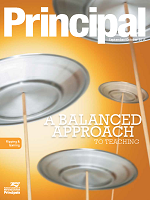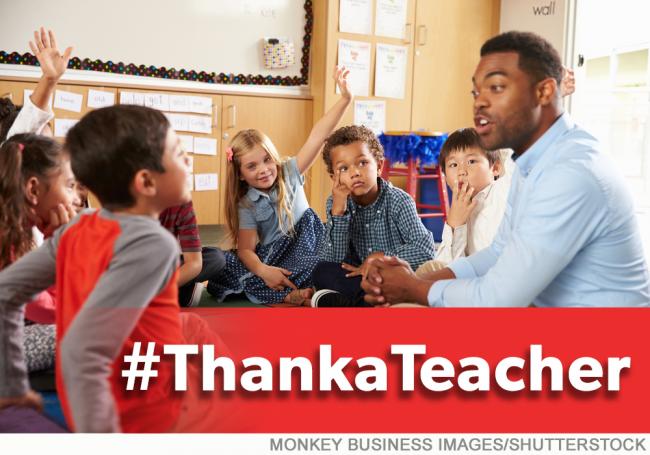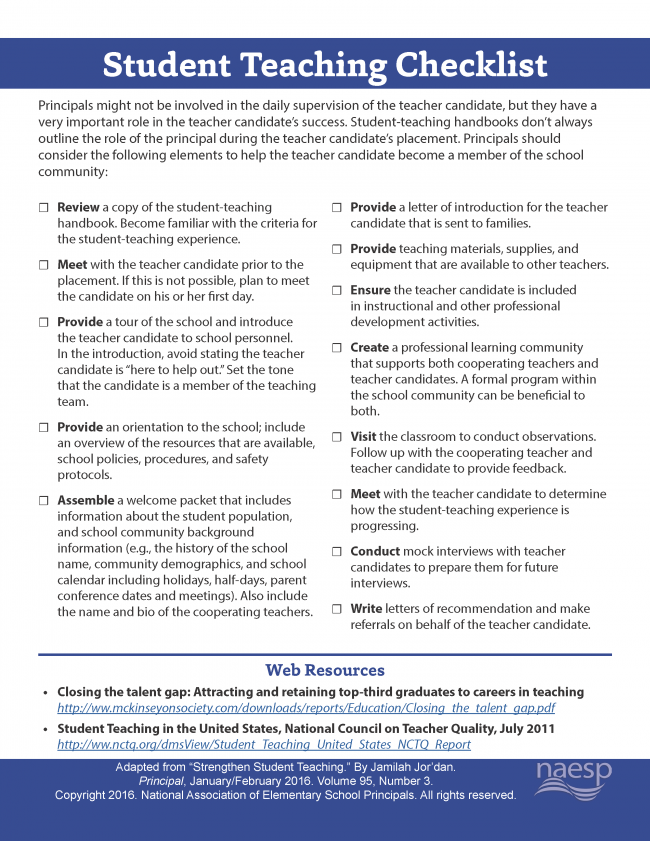
Best Practices: Instructional Leadership—Supporting Teachers
Webinars
 Year Round Practical Strategies That Help with Common Core
Year Round Practical Strategies That Help with Common Core
Presenter
Larry Bell, Owner/President, Multicultural America, Inc.
Description
This engaging session provides participants with practical strategies that will prepare students for the Common Core and other assessments. The “12 Powerful Words” strategy will help students master the nomenclature found on standardized tests. The UNRA(A)VEL Reading/Comprehension Strategy will assist students in mastering the passages found on complex assessments. This webinar is a part of Learning First Alliance’s Get it Right campaign on Common Core implementation.
Articles from Principal Magazine
 Principal September/October 2015:
Principal September/October 2015:
“Managing Teacher Talent”

Adapt and Evolve
A supportive culture of reflection guides teachers toward effective Common Core implementation. —Aaron Theil
The Main Points of Teacher Evaluation
To help teachers grow, principals must take on the combined role of supervisor and evaluator.
—John F. Eller and Sheila A. Eller
Teacherpreneurs as Agents of Reform
Teacher leaders who incubate and execute ideas for school reform.
—Barnett Berry
Common Core Meets Uncommon Kids
Finding common ground with students on the autism spectrum.
—Barbara Boroson
Eliminate Ping-Pong Behavior
3 classroom management strategies that inspire confidence in your teachers.
—Stephen E. Boyd
 Principal November/December 2014:
Principal November/December 2014:
“Supporting Teachers”

Better Together
National Distinguished Principals share models for effectively working with teacher leaders.
—Susan McLester
Inspired Instructional Coaching
Stimulate teaching by structuring meaningful observations and feedback that will improve instruction schoolwide.
—Sandra A. Trach
Multiply Teacher Talent
What if your well-intended guidance stifles gifted teaching, rather than encourages it?
—Elise Foster
Edcamps & Unconferences
Ignite professional development by unlearning traditional roles and formats.
—Meredith Barnett
Articles from Communicator
Communicator August 2016:
“Why You Should Help Teachers Find Their Voice”
How listening to and learning from teachers will help you be a better leader. Read more.
Communicator July 2016:
“Great Ideas for Welcoming Your Teacher Back”
Use these simple tips to energize your staff and get them off to a good start. Read more.
 Communicator May 2016:
Communicator May 2016:
“4 Tips for Better New Teachers”

NAESP Conference speaker Todd Whitaker shares insights on how great principals hire, train, and support new teachers. Read more.
 Communicator April 2016:
Communicator April 2016:
“Three Ways to Show Teachers Your Support”

Celebrate the teachers at your school during National Teacher Appreciation Week, May 2-6. Read more.
Communicator March 2016:
“Teacher Evaluation Roundup”
4 tips and resources to maximize teacher evaluation efficiency and effectiveness. Read more.
Communicator January 2016:
“Video vs. Traditional Observations”
Which method provides the best picture of a teacher's classroom? Read more.
 Communicator February 2016:
Communicator February 2016:
“Student Teachers: There’s a Checklist for That”
 How to create a welcoming environment for student teachers. Read more.
How to create a welcoming environment for student teachers. Read more.
NAESP Conference Presentations
 Speaker Series: Building Instructional Leadership Capacity
Speaker Series: Building Instructional Leadership Capacity

Primary Presenter
Ann Cunningham-Morris, Ed.S — Education Consultant and Author, ACM EdSolutions, LLC
Co-Presenter
Deborah ChildsBowen, Ed.D. — Chief Learning Officer, Creative Mind Enterprise
Description
The research is clear...principals make a difference in teacher and student success. So, what leadership development practices should be in place to assure that principals and aspiring principals reach their full leadership potential so that students benefit? How can we assure that principal leadership development becomes the catalyst for impacting overall school improvement? How do we approach principal growth and professional learning using strengths-based strategies and practices? In this session, participants will explore the answers to these questions through four key roles and 17 impactful criteria of effective instructional leaders. Participants will leave this session armed with an increased repertoire of leadership development practices and action steps to use in their districts and schools.
 Maximizing the Impact of Instructional Coaching
Maximizing the Impact of Instructional Coaching

Primary Presenter
Dora Daniluk, MA — Consultant, Retired Texas Educator
Description
Maximizing the impact of instructional coaching on a campus first requires the right combination of instructional coach, principal support, and campus readiness. This session will provide insight into these key ingredients as well as a menu of strategies and activities that an administrator can use to enhance the instructional coaching program on a school campus.
 School Improvement: Balancing Culture and Instruction
School Improvement: Balancing Culture and Instruction

Primary Presenter
Donna J. Snyder, Ed.D — Director, Elementary Education, Arlington Public Schools
Co-Presentar
Amy J. Krause, Master’s Degree — Instructional Coach, Ankeny Community School District
Description
Balancing both culture and instruction are necessary components for school improvement. This presentation addresses both elements while providing detailed tools to strengthen teacher collaboration, improve team development, instructional delivery and productivity while creating a climate for capacity building. Strategies applying this school’s model to a district initiative will be provided.